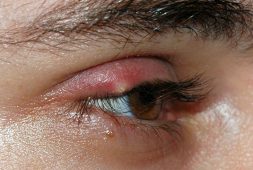
Many of us will swear that toothaches are the most unbearable pain. It definitely is an agonizing annoyance, most especially at night. Surely enough to keep you awake, and hoping for an instant cure to get rid of the pain. Good thing there are several remedies available to make our nights more comfortable once a toothache sets in. Let us consider 9 home remedies for relieving a toothache at night.
Oral pain relievers
Lots of households keep OTC pain relievers handy for many pain ailments. And a toothache is one of the top reasons we have pain medication. Most common would be ibuprofen (Advil) and acetaminophen (Tylenol).This work relatively well for mild to moderate toothache pain. Make sure though, that you stay within the recommended dosage. Still, there are other pain relievers for severe pain that a dentist can prescribe, so consult your dentist as soon as possible.
Medicated ointments
There are also some medicated ointments available to soothe toothache pain. Over-the-counter ointments and numbing gels contain ingredients like benzocaine that can numb the area. However, this is not suitable for young children, so take note.
Cold compress
Athletes have used cold compress as a reliable relief for pain and discomfort. It can work for toothaches as well.Apply a bag of ice wrapped in a towel to the affected area in the jaw. This will help constrict the blood vessels in the area and reduce the discomfort and pain. Usually, 15-20 minutes at a time will suffice, depending on the severity of the toothache.
Rinse with salt water
A remedy most likely grandma would recommend. A salt water rinse has been a home remedy for toothaches for a long time. It is simple, inexpensive, and effective. It is a natural antibacterial agent and may reduce inflammation. It also helps protect damaged teeth from infection. Besides, the act of rinsing may also dislodge any food particles stuck in the teeth or gums.
Rinse with hydrogen peroxide
Another rinse to consider is with hydrogen peroxide. Periodontitis is a serious gum infection usually due to poor oral hygiene. It can cause soreness, bleeding gums, and loosen teeth from their sockets. A study showed that a mouthwash with hydrogen peroxide helps reduce plaque and symptoms of periodontitis. It is important to note to use food-grade hydrogen peroxide with equal parts water, and swish it around the mouth, but do not swallow. Obviously it is not recommended for children, as they may accidentally swallow the mixture.
Peppermint tea
Some people swear that swishing with peppermint tea, or sucking on peppermint tea bags helps relieve toothache pain.Researchers have noted that peppermint contains antibacterial and antioxidant compounds. And menthol, an active ingredient in peppermint, may also have a numbing effect on sensitive areas.
Garlic
Another common house remedy used to relieve toothache pain. The main compound of garlic is allicin, which has a strong antibacterial effect that can help kill the bacteria causing the pain. Simply chew a clove of garlic and allow it to sit beside the infected tooth. Of course if you can’t stand the taste of garlic, this solution is not for you.
Clove
Cloves contain eugenol which can reduce pain.A 2015 clinical trial indicated that individuals who applied eugenol to their gums after having a tooth extracted had less pain and inflammation while healing. Eugenol acts as an analgesic which numbs the area. To use cloves, so ground cloves in water to make a paste. Apply it to the tooth, or put it into an empty tea bag and place it in the mouth. You can also chew on cloves and let it sit near the tooth. Do not swallow, single cloves can be spiky and painful if swallowed. So, not suitable again for children.
Elevation
Some people admit this works for them. Pooling blood in the head may cause additional pain and inflammation. Using an extra pillow or two may relieve pain and help them sleep better. Simple solution, although it may not work for all.
Knowing these simple home remedies should prove to be helpful, but what causes toothaches in the first place? The most common cause is definitely tooth decay. This may lead to cavities if not treated. Acids and bacteria break through the enamel and eat away at the delicate tissues inside the tooth. This exposes the nerve, and that’s when the pain starts.
Also, a sinus infection may also cause toothaches in some individuals. The symptom occurs when the infection drains from the head. Pain and pressure may worsen at night.
Other potential causes of a toothache include:
Gum disease
Dental abscesses
A wisdom tooth or adult teeth coming in
Losing a filling
Food stuck in the teeth or gums
Trauma to the jaw
Grinding teeth at night
A lot of people also note that some toothaches hurt more at night. One possible reason why this is so, is that when a person is lying down, blood rushes to the head. This may increase the pain and pressure people feel from a toothache. Another reason is that there are less distractions. This makes your mind focus on the pain of the toothache. During the active day, your mind is busy with so many things, it usually does not focus on the toothache.
When it’s time to see the dentist
Remember that home remedies are only temporary relief. When you have a toothache, go see your dentist. Your dentist may discover other signs of an infection and may prescribe antibiotics. Cracked or decayed teeth need to be repaired, for a permanent solution. Ignoring the signs of tooth decay,or hesitating to visit your dentist, will surely make matters worse. But if you can live with that, well, it’s all up to you.
Toothaches are bothersome, to say the least. Those who have never experienced a toothache are some of the luckiest people around. Home remedies should not replace a visit to the dentist.They are simply temporary relief, until you can visit the dentist and properly address the toothache problem. Stay healthy, and toothache-free.



